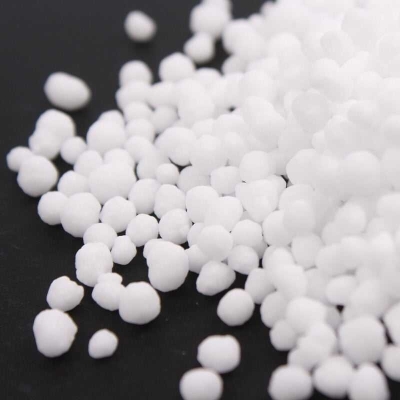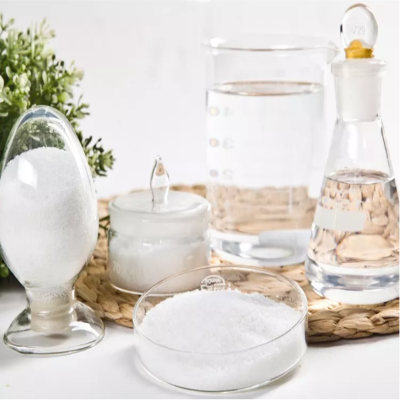-
Categories
-
Pharmaceutical Intermediates
-
Active Pharmaceutical Ingredients
-
Food Additives
- Industrial Coatings
- Agrochemicals
- Dyes and Pigments
- Surfactant
- Flavors and Fragrances
- Chemical Reagents
- Catalyst and Auxiliary
- Natural Products
- Inorganic Chemistry
-
Organic Chemistry
-
Biochemical Engineering
- Analytical Chemistry
- Cosmetic Ingredient
-
Pharmaceutical Intermediates
Promotion
ECHEMI Mall
Wholesale
Weekly Price
Exhibition
News
-
Trade Service
Recently, researcher Tang Yongbing from the Functional Thin Film Materials Research Center of the Shenzhen Institute of Advanced Technology, Chinese Academy of Sciences and his team have developed new organic compounds for high-capacity and stable potassium ion storage.
The related research results of Novel lamellar tetrapotassium pyromellitic organic for robust high-capacity potassium storage have been Published online in the top international chemistry journal "German Applied Chemistry" (Angew.
Chem.
Int.
Ed.
, 2021, DOI: 10.
1002/anie.
202103052, IF=12.
959)
.
The first author of the paper is Assistant Researcher Pan Qingguang, and the corresponding author is Researcher Tang Yongbing
.
In recent years, organic materials have become a research hotspot in metal ion storage due to their diverse structures, flexible structure design, and better redox reversibility
.
However, such materials still face problems such as limited capacity, slow ion diffusion kinetics, and poor structural stability
.
To improve the metal ion storage performance of organics, it should generally have the following properties: first, in order to achieve high capacity, organic molecules should have small molecular weights and multiple active sites; second, in order to improve ion diffusion kinetics, the material structure should provide Convenient ion diffusion channels to reduce the diffusion energy barrier; third, to improve structural stability, its molecular structure should have rigid conjugated π bonds
.
Figure (a) the topography of K4PM, (b) the schematic diagram of the crystal structure of K4PM, (c) the comparison diagram with the reported rate performance, (d) the potassium electric-length cycle performance diagram based on the K4PM organic electrode based on this, Researcher Tang Yongbing and his team members Qingguang Pan, Assistant Researcher Zheng Yongping, and others have designed and synthesized a layered structure of tetrapotassium pyromellitic acid (K4PM) electrode material
.
Because the small molecule organic material has multiple active sites and large interlayer spacing, it exhibits good potassium storage performance.
Its potassium storage capacity is as high as 292 mAh/g, and it also has excellent rate performance and long-term cycle stability (1000 mAh/g).
The capacity retention rate after the lap is 83%)
.
The research provides a new way for the development of new organic energy storage electrode materials
.
The research was funded by the National Natural Science Foundation of China, Guangdong Province, Shenzhen Science and Technology Plan, and Postdoctoral Science Fund
.
The related research results of Novel lamellar tetrapotassium pyromellitic organic for robust high-capacity potassium storage have been Published online in the top international chemistry journal "German Applied Chemistry" (Angew.
Chem.
Int.
Ed.
, 2021, DOI: 10.
1002/anie.
202103052, IF=12.
959)
.
The first author of the paper is Assistant Researcher Pan Qingguang, and the corresponding author is Researcher Tang Yongbing
.
In recent years, organic materials have become a research hotspot in metal ion storage due to their diverse structures, flexible structure design, and better redox reversibility
.
However, such materials still face problems such as limited capacity, slow ion diffusion kinetics, and poor structural stability
.
To improve the metal ion storage performance of organics, it should generally have the following properties: first, in order to achieve high capacity, organic molecules should have small molecular weights and multiple active sites; second, in order to improve ion diffusion kinetics, the material structure should provide Convenient ion diffusion channels to reduce the diffusion energy barrier; third, to improve structural stability, its molecular structure should have rigid conjugated π bonds
.
Figure (a) the topography of K4PM, (b) the schematic diagram of the crystal structure of K4PM, (c) the comparison diagram with the reported rate performance, (d) the potassium electric-length cycle performance diagram based on the K4PM organic electrode based on this, Researcher Tang Yongbing and his team members Qingguang Pan, Assistant Researcher Zheng Yongping, and others have designed and synthesized a layered structure of tetrapotassium pyromellitic acid (K4PM) electrode material
.
Because the small molecule organic material has multiple active sites and large interlayer spacing, it exhibits good potassium storage performance.
Its potassium storage capacity is as high as 292 mAh/g, and it also has excellent rate performance and long-term cycle stability (1000 mAh/g).
The capacity retention rate after the lap is 83%)
.
The research provides a new way for the development of new organic energy storage electrode materials
.
The research was funded by the National Natural Science Foundation of China, Guangdong Province, Shenzhen Science and Technology Plan, and Postdoctoral Science Fund
.







